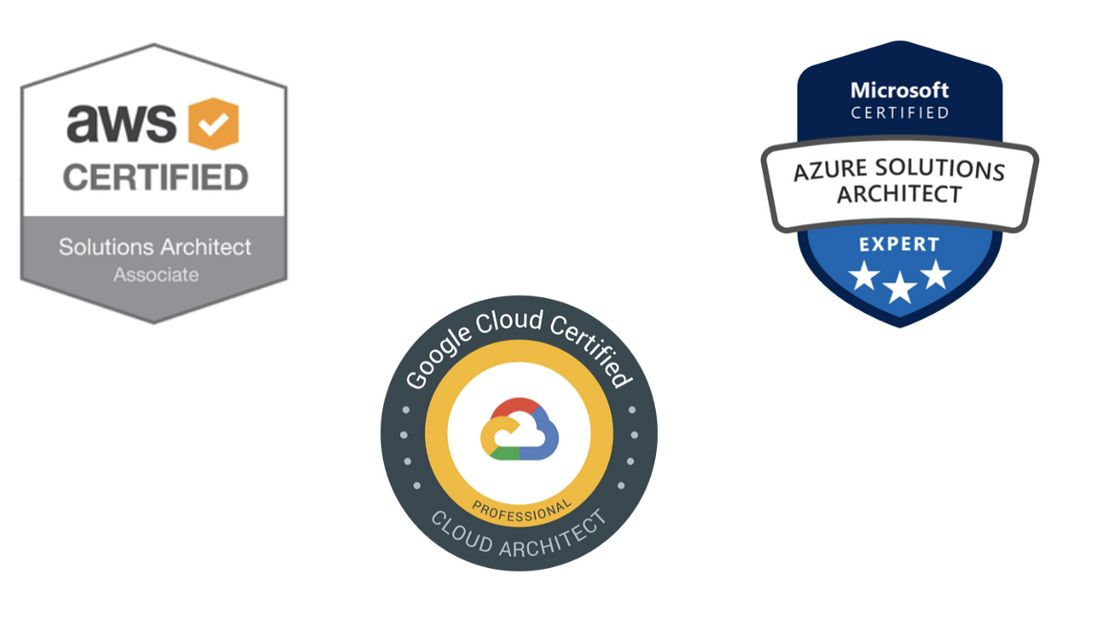
Building a Career in Cloud Technology: Certifications and Training in AWS, Azure, and Google Cloud
Share
Cloud computing is transforming the way businesses operate. From startups to massive enterprises, everyone’s moving to the cloud, and with that shift comes a huge demand for professionals with the skills to manage cloud platforms. If you’re in IT or thinking about breaking into the field, getting certified in cloud technology can open up a world of opportunities. AWS, Microsoft Azure, and Google Cloud are the top platforms leading this revolution, and certifications in these can make you stand out.
In this blog, we’ll talk about why cloud certifications are so valuable, what the top platforms offer, and how getting trained in AWS, Azure, or Google Cloud can take your career to the next level.
Why Cloud Certifications Matter
We’re living in a world that’s more connected than ever, and businesses need experts who can build, manage, and secure cloud environments. That’s where certifications come in. Here’s why getting certified is a smart move:
-
Prove Your Skills: Certifications show you have what it takes to work in cloud environments. They’re a badge of expertise that employers recognize and trust.
-
More Job Opportunities: The demand for cloud professionals is growing fast. Companies across the globe are looking for certified individuals who can manage their cloud operations.
-
Higher Paychecks: Certified cloud professionals tend to earn more than those without certifications. AWS-certified experts, for example, are known to command top salaries in IT roles.
-
Future-Proof Your Career: Cloud technology is here to stay. By earning certifications in cloud platforms, you’ll stay relevant in a field that’s always evolving and growing.
The Big Three: AWS, Azure, and Google Cloud
When it comes to cloud computing, there are three major players: Amazon Web Services (AWS), Microsoft Azure, and Google Cloud Platform (GCP). Each has its own strengths, and all three offer a range of certifications to help you level up your skills.
1. Amazon Web Services (AWS)
AWS is the most widely used cloud platform, and it offers a range of services from computing power to storage. It’s the go-to cloud provider for businesses of all sizes, and AWS certifications are highly respected in the IT world.
Key AWS Certifications:
-
AWS Certified Solutions Architect – Associate: If you want to design and deploy systems on AWS, this certification is a must. It’s perfect for learning how to build scalable solutions.
-
AWS Certified Developer – Associate: This one is for developers who want to learn how to build and maintain applications using AWS services like S3 and Lambda.
-
AWS Certified SysOps Administrator – Associate: This certification is all about managing and operating systems on AWS, making it ideal for those interested in system administration.
Why AWS?: AWS is the biggest player in the cloud world. If you’re looking to work for a company that uses AWS, having a certification in this platform will give you a major advantage.
2. Microsoft Azure
Azure is a popular choice for businesses that already use Microsoft products like Office 365 and Windows Server. It’s known for being enterprise-friendly and offers seamless integration with other Microsoft services.
Key Azure Certifications:
-
Microsoft Certified: Azure Fundamentals: A great starting point if you’re new to cloud computing. It covers the basics of Azure and cloud services in general.
-
Microsoft Certified: Azure Administrator Associate: Perfect for IT pros who manage Azure infrastructure. You’ll learn about configuring networks, managing storage, and more.
-
Microsoft Certified: Azure Solutions Architect Expert: If you’re interested in designing and implementing cloud solutions using Azure, this expert-level certification is for you.
Why Azure?: If you’re already working in a Microsoft-heavy environment, Azure is likely the cloud platform of choice. Plus, many large enterprises and government agencies favor Azure, making it a valuable certification to have.
3. Google Cloud Platform (GCP)
Google Cloud is making a name for itself with its focus on data analytics, machine learning, and artificial intelligence. GCP is gaining popularity, especially among companies working on cutting-edge technology.
Key Google Cloud Certifications:
-
Google Cloud Certified – Associate Cloud Engineer: A great first step into Google Cloud, this certification covers tasks like deploying apps, monitoring systems, and managing enterprise solutions on GCP.
-
Google Cloud Certified – Professional Cloud Architect: If you want to design and implement cloud solutions on GCP, this certification will help you master Google Cloud's services.
-
Google Cloud Certified – Professional Data Engineer: Specializing in big data? This certification will teach you how to build and manage data processing systems on GCP, making it perfect for those looking to work with AI and analytics.
Why Google Cloud?: If you’re interested in data science, AI, or working with tech-driven companies, Google Cloud certifications will put you on the map.
Which Cloud Certification is Right for You?
Choosing the right cloud certification depends on your career goals and interests. Here’s how to decide:
-
What’s Your Goal?: Want to become a cloud architect? Look into solutions architect certifications. More interested in system administration? Go for certifications like AWS SysOps or Azure Administrator.
-
What Platform Do You Use?: If you already work in a Microsoft environment, Azure may be the best fit. If your company is using Google’s tools, go with GCP. AWS is a safe bet if you’re unsure, as it’s the most widely used platform.
-
Start with the Basics: If you’re new to cloud computing, consider starting with an entry-level certification like AWS Cloud Practitioner, Azure Fundamentals, or GCP Associate Cloud Engineer. Once you have the basics down, you can move on to more specialized certifications.

